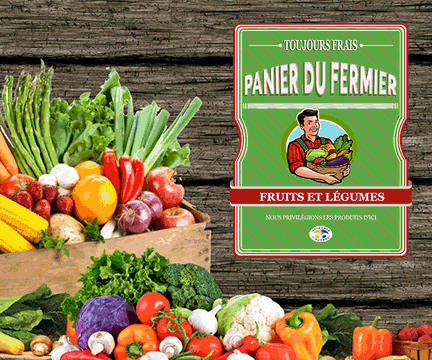This story was published in print for the May 29 issue of Parc-Extension News. Some information may have changed.
By Avleen K Mokha

The coronavirus emergency has profoundly changed the lives of families in Park Extension. Children home from school — and many parents home from work — has strained families. Park Extension Youth Organization (PEYO) recognizes residents’ concerns, whether it is not having enough food for all the family or not having toys at home.
PEYO Executive Director Jo-An Audrey Jette describes how their organization teamed up with other community organizations to help the Park Ex neighbourhood, since the COVID-19 emergency was declared.
Meals on wheels in pandemic
PEYO teamed up with Resource Action Alimentaire on March 13, just one day after the Quebec health emergency was declared.
Jette explains that PEYO had a food delivery program in place for senior residents. When the city announced lockdown measures, Jette was connected to the PEYO Facebook messages.
She received a message the same day.
“How am I going to get food now?”
Jette realized that PEYO needed to act quickly. A discussion with Resource Action Alimentaire leader Monique Leger confirmed to Jette that pooling resources was best for the community.
“Our organizations came together quite naturally,” Jette said. “We had the equipment and they had connections to food.”
Support from Centraide
Both PEYO and Resource Action receive funding from Centraide Greater Montreal, which received a donation of $10 million from the Villeray-Saint-Michel-Parc-Extension borough. “Centraide is very much in touch with the City [of Montreal],” Jette said.
Once Centraide received funding, PEYO received financial assistance in under 48 hours.
More families need food
Since March 13, PEYO has fed 600 families, some more than once. According to Jette, many of these families seemed well-off relative to others before the COVID-19 pandemic.
“The typical person who needs help has dramatically changed,” Jette said. “Families that were financially stable in the context of Park Ex realized that in two weeks they won’t be able to put food on the table.”
Currently, PEYO is delivering prepared meals and food baskets to families and students. Every day the organization delivers between 50 to 60 meals straight to the door. On deliveries made on Fridays, PEYO includes meals for the weekend.
Small team to minimize health risks
Jette explains that PEYO has a small team of nine employees. They work full-time as essential workers, so they are at a higher risk of getting COVID-19. However, much of the staff lives alone or lives in small families.
Sticking to a smaller staff means many of them go out to make deliveries, but it also means that the team can keep a closer eye on social interactions. For Jette, it has been important to balance assessing the risk of transmitting the virus with matching the exacerbated needs of Park Ex residents.

“Let’s say one of us gets sick, how many people do we affect in our social circle? We’ve put a lot of thought into this,” Jette said.
PEYO uses two vehicles full-time to make deliveries and some days needs four.
Sourcing the food
PEYO owns a restaurant license so it operates under the public health protocols set for dining businesses. The organization has two chefs that prepare meals, working out of their office space in the William-Hingston Complex.
“We want our meals and food baskets to be nutritional but also familiar,” Jette said.
The main source of food is from Moisson Montreal, a local food bank. One of the chefs specializes in using ingredients that may be unfamiliar to some families.
“For example, we get so much asparagus from the food back, but we can’t give it to a family that hasn’t seen it before. What use will it be to them if it’s not familiar to their culture?”
When preparing meals or food baskets, PEYO notes down dietary needs. For example, families can ask for vegetarian meals or meat that is halal.
Donations must keep coming
Since the pandemic struck, PEYO has also received donations from other organizations in the community. For example, Group Miron Alimentaire donated Greek croissants and Malhi Sweets, a local Indian restaurant, donated 100 meals.
“We are so thankful for the donations we have gotten,” Jette said. “I just hope they keep coming, because this crisis isn’t going away anytime soon.”
Summer brings challenges
For children and youth in Park Extension, Jette believes that the community will face big challenges ahead this summer.
Art kits
One such challenge is the limited resources parents have at home to keep children engaged.
“Families have said to me, ‘I don’t have toys at home, what can I do?’” Jette said.
For this reason, PEYO partnered with the CIUSSS in the first week of May to prepare art kits to donate to families. These kits include supplies like crayons, colouring pencils, and prompts to engage children. Suggestions for activities are written in multiple languages. So far, 40 families have signed up to receive art kits.
Jette explains that PEYO is connected with art therapists for a program it runs in schools for children who recently immigrated to Canada. The art therapists will be in touch with families that receive art kits. If the initial distribution of kits helps families, PEYO hopes to expand this initiative.
Families interested in receiving art kits simply contact the organization.
“When someone reaches out to us, we look into what their needs are,” Jette said. “We will put them on a list if they share that they need things like art equipment.”
Barriers to technology
Some activities included in art kits will be shared on PEYO’s social media. However, Jette believes that many families cannot use resources put online. Even families that have internet access may not have enough devices to go around.
“One family told me that they have one smartphone and five kids,” Jette said.
“I’m worried about the most vulnerable kids, which we are not going to reach by social media.”
Summer camp
Quebec officials have announced that summer camps will reopen June 22. However camps will take fewer students and need to hire more monitors.
Summer usually brings around 250 children to PEYO’s summer camp.
“We take great pride in our summer camps,” Jette said.
But Jette thinks summer camp this year will be radically different. Typically, camp activities take place in parks, pools, and other public spaces. Only a little time is spent indoors, at the William-Hingston Complex. Right now, Jette is waiting to receive guidelines from the government about running the camp during a public health emergency.
PEYO recruits teenagers 16 years or older for the summer camp. As “explorers”, they guide younger children. Jette expresses confidence in her team of youth mentors but worries about the demand on them to enforce social distancing.
“Parents will have high expectations,” Jette said, adding that social distancing is hard for younger children to understand.
Working at the summer camp is the first full-time job for many teenagers PEYO recruits as mentors.
“We will have to respond quickly to what the government decides,” Jette said.
A version of this story was published in the May 29 print issue for Parc-Extension News. Click here to read the full issue.









